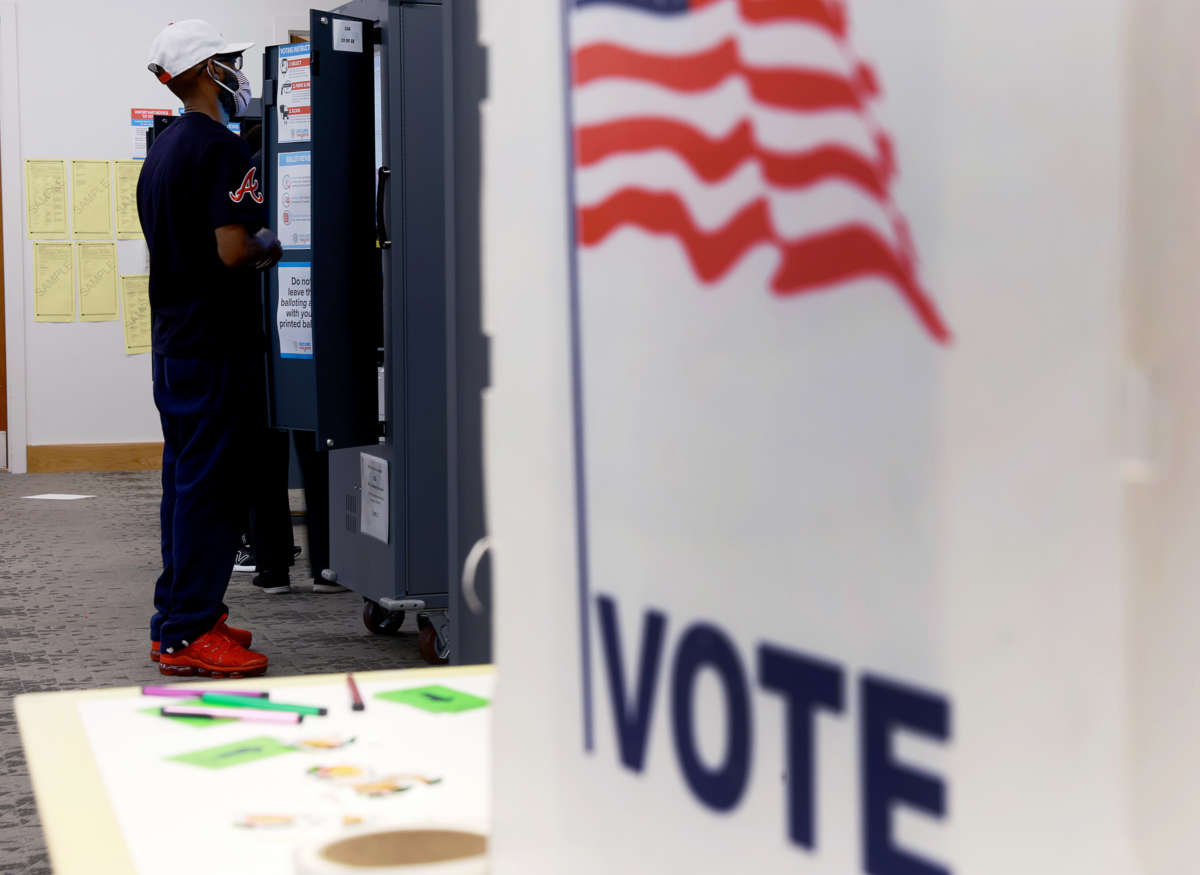As Democrats’ efforts to prevent voter suppression and election tampering bills have stalled in Congress, state lawmakers are still quietly passing bills to make it easier to intimidate and criminalize voters and election officials, a new report reveals.
In a report released last week, the Brennan Center for Justice states that, in roughly the first four months of 2022, six states have passed nine election interference laws — laws that have opened the door for partisan actors to tamper with elections and election results. Such bills have been passed in Alabama, Arizona, Florida, Georgia, Kentucky and Oklahoma; Georgia Republicans are responsible for four of the bills.
Three Georgia bills have made it easier for partisan forces to be appointed to or control election boards in Miller, Montgomery and Dawson counties, all counties that heavily favored Donald Trump in the 2020 presidential election.
Georgia and Florida lawmakers have also passed a particularly extreme set of bills that grant new powers to police forces, ostensibly to enforce election laws — though, in reality, these laws will likely disproportionately target and disenfranchise already marginalized voters.
The Georgia bill gives the Georgia Bureau of Investigation the ability to launch a criminal probe into supposed election fraud allegations without support from another agency. Florida’s law, first proposed by far right Gov. Ron DeSantis, creates a 25-person election crimes office, which experts say will serve only to suppress voters.
Meanwhile, Alabama, Kentucky and Oklahoma have created laws that criminalize actions that an election official would normally take to run elections smoothly; typical moves like accepting private funding in order to help with logistics like ballot sorting or registering Native American people to vote are now outlawed.
Arizona has also made it a felony offense for an election official to fail to comply with a new complex and racist law to verify a potential voters’ citizenship status.
Overall in the 2022 legislative session, the report finds, lawmakers have introduced at least 148 election interference bills, even as federal lawmakers have largely moved on from efforts to prevent GOP lawmakers from passing bills to skew elections in their favor. Lawmakers in 39 states have also considered at least 393 voter suppression bills in this year’s legislative session.
On the other hand, however, lawmakers in 44 states and Washington, D.C. have introduced hundreds of bills aimed at expanding voting access so far in 2022.
States have also enacted voter suppression laws this year. Arizona and Mississippi have created new proof of citizenship laws that would restrict voting access, while lawmakers in at least five other states have passed restrictive bills that have either been vetoed or are waiting for action from the states’ governors.
Join us in defending the truth before it’s too late
The future of independent journalism is uncertain, and the consequences of losing it are too grave to ignore. To ensure Truthout remains safe, strong, and free, we need to raise $27,000 in the next 24 hours. Every dollar raised goes directly toward the costs of producing news you can trust.
Please give what you can — because by supporting us with a tax-deductible donation, you’re not just preserving a source of news, you’re helping to safeguard what’s left of our democracy.
